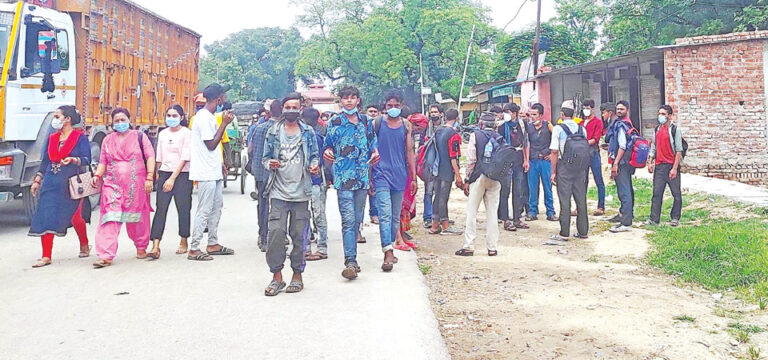
With the news of decreasing number of coronavirus infections in the country, a large number of Nepalis are leaving their home for India in search of work.
More than 1000 youth from hill and mountain districts in Karnali and Lumbini provinces are moving to India on a daily basis. They expressed their grievances that they are forced to leave their home since there were no employment opportunities in Nepal.
Most of them are critical of government indifference towards the plight of unemployed youth and the poor. “We are forced to go to India again as the government has failed to understand our troubles and employment need,” they said.
Naresh Rawal of Manma, Kalikot, who had returned home from India about three months ago with the surge in the coronavirus case there, said he was leaving the country as his family was forced to stay hungry as they couldn’t find any work here in Nepal.
“Although there is a risk of coronavirus contagion, we are going to India. If we don’t find any work soon, our families would die of hunger soon,” he said. He is one of the members of a 12-person group heading to Shimla, a hill town in Northern India.
Likewise, Jiban Thapa of Rangsi in Jajarkot district said that they wouldn’t have opted to leave the country to face various troubles and challenges in foreign land had there been work and food for them here.
“I know that it is risky to travel to new places when there is a threat of COVID-19 but there is no alternative for us. We must earn some money to make our both ends meet,” he said. He also stated that the government had never understood their troubles so they were forced to live a hard life in the hills and in foreign land.
Similarly, Raj Kumar Malla of Shreenagar, Salyan district explained that he wanted to be with his family and relatives but was doomed to leave home to find work in India. “It is our fate that we have to spend our youth in a foreign land,” he said.
Most youths have the common opinion that lack of work and livelihood in the country was the main reason behind their migration to the neighbouring country.
Source : TRN,





